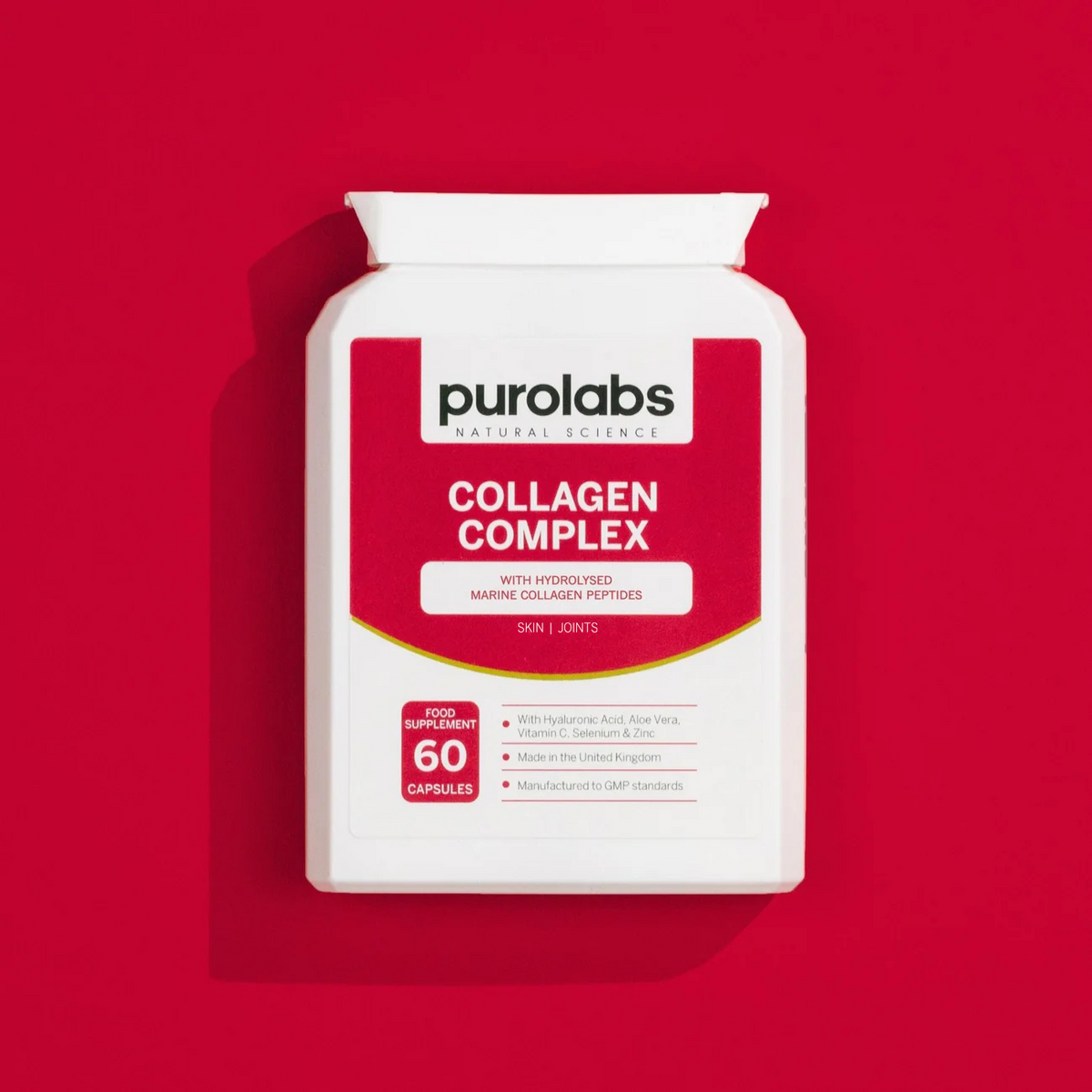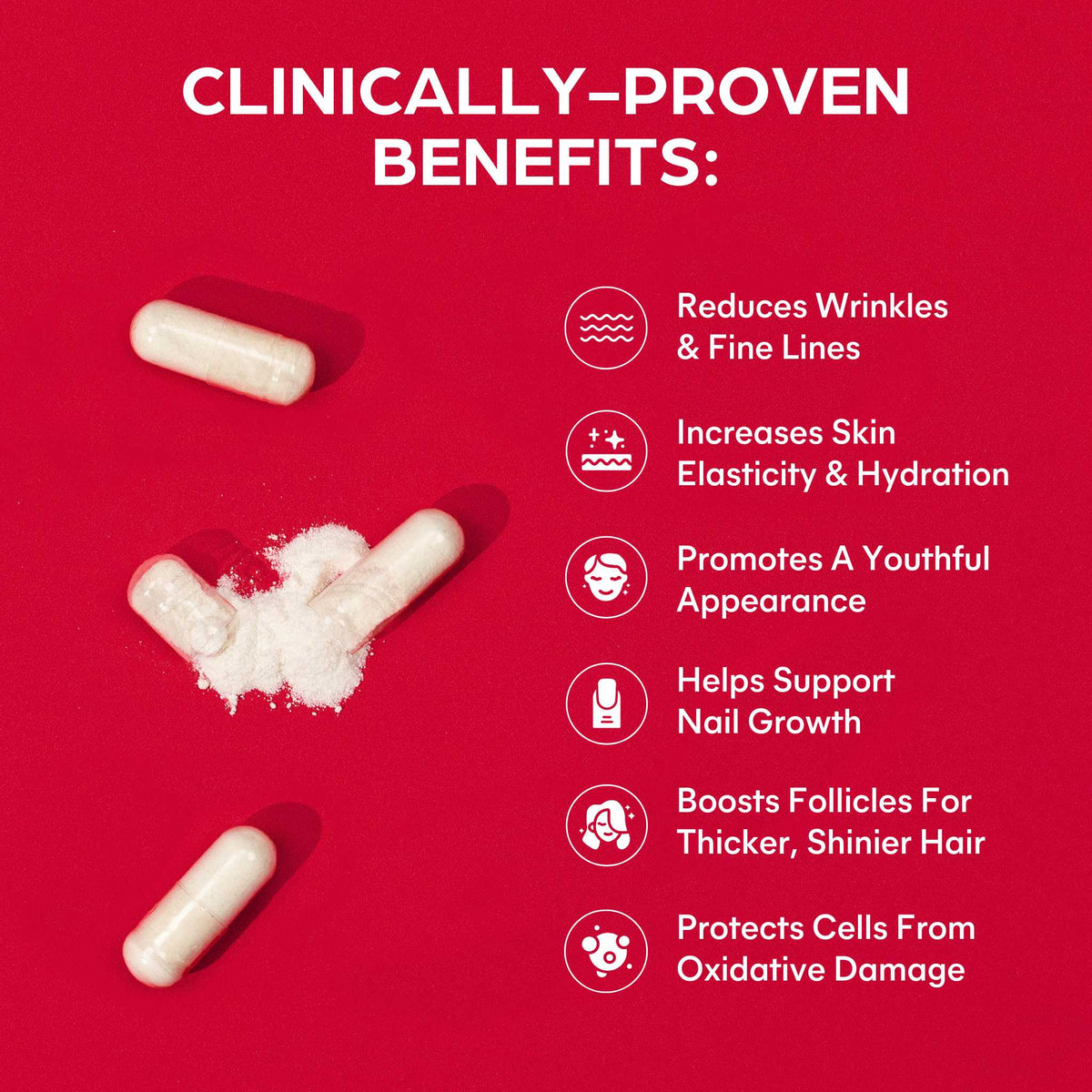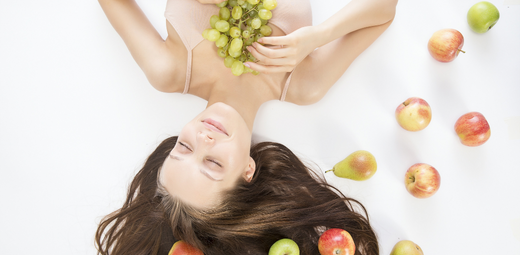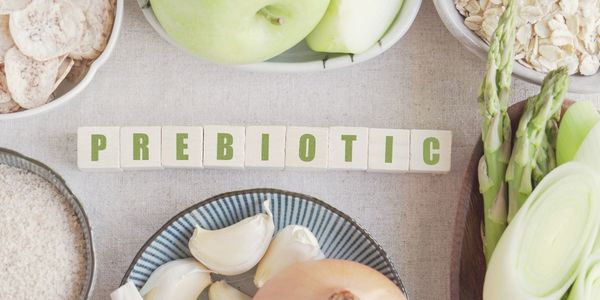We’ve all had hair envy from time to time. You glance at that stranger across the room and admire their particularly thick or curly locks.
You find yourself wanting to ask them ‘tell me what you use!?’ but more often than not, it’s a mix of God-given genetics and a healthy varied diet that helps give hair that luscious boost.
Hair is primarily made up of a protein called keratin, which is a vital protein required in abundance by the body to help build the structures that make up our hair, skin, and nails.
Our hair is made up of three key layers, however, this article will focus on the outermost layer (the cuticle) which helps protect hair from breakage and environmental influences, and the innermost layer (the medulla) which reflects light to keep hair shiny and vibrant.
What Does Healthy Hair Growth Look Like?
Average hair growth is about half an inch per month or approximately six inches per year1.
Factors that affect this are:
- Genetics2
- Nutrition
- Life stage (ever heard of pregnancy hair?)
- Heat styling and sun damage
- Hormones
- Illness
It’s also important to note that all hair follicles on our body contain their own blood supply, meaning scalp stimulus such as giving your scalp regular gentle exfoliation and limiting product build-up is vital for hair growth. This is as important as a healthy diet when it comes to promoting hair growth, so do ensure that you regularly wash your hair and keep the scalp free of build-up.
In this article I’m going to divulge a few key foods that have been shown to help prevent hair loss, help improve thickness, reduce brittleness, and add shine. All these elements are vital to helping boost healthy hair growth and be the object of a stranger’s envy!
1. Biotin Rich Foods
Biotin, also known as B7, is a well-known and much-loved vitamin that we tend to see splashed on the labels of cosmetic products marketed for healthy hair and nail growth.
Studies show that a common symptom of biotin deficiency is hair loss. This doesn’t just extend to hair loss on your head, this extends to the hair over the entire body including the eyes, nose and mouth leaving us vulnerable to infections like conjunctivitis3.
Interestingly, knotty hair may also be a sign that you lack sufficient biotin4. Who would have thought? If you experience issues with the vitality, thickness or texture of your hair, then consider supplementing with biotin for at least three months to monitor changes.

Biotin Complex
You can also up your intake of biotin-rich foods by increasing your intake of:
- Egg yolk
- Walnuts
- Hazelnuts
- Pumpkin seeds
- Salmon
- Avocado
2. Water
OK, water isn’t technically food, but it’s just as important.
Water helps carry hair-loving nutrients and proteins to the scalp to help create the perfect environment for healthy hair.
As mentioned, every hair on our body has a blood supply and for our hair to receive nourishment, we require plenty of water to allow our blood to transport these nutrients to the hair follicle.
Water hydrates our cells and is known to nourish our skin, including our scalp and studies show that a flaky dry scalp can affect hair production, density, and lifespan.
3. Protein Rich Foods
Keratin, as previously mentioned makes up a large part of what builds and maintains hair strength and is in fact a protein.
We require amino acids from the foods we eat to help provide the building blocks for proteins like keratin and collagen, to keep hair structure and help prevent our hair from becoming thin and brittle, especially if you regularly chemically treat or colour your hair5.
It is essential to include a variety of protein sources in your diet (especially if you eat a plant-based diet) to acquire all the amino acids necessary to build and support healthy hair, skin and nails. See a few examples of different types of protein you can add to your daily diet for a beautiful hair boost!
Animal Protein6.
- Eggs
- Fatty fish – Salmon, Herring, Mackerel, Sardines
- Grass-fed beef/lamb
- Grass-fed butter
- Organic Chicken
- Bone broth
Plant Protein7.
- Beans & Legumes
- Buckwheat
- Brown Rice
- Green peas
- Peanut and other nut butter
- Nuts & Seeds
- Tofu & tempeh
4. Dark Leafy Greens
Dark leafy greens should be a regular staple in everyone’s diet. They contain fibre, along with vitamins A & C and calcium and are packed with antioxidants, making them a perfect tool to help support hair vibrancy, shine, and prevent split ends and breakages.
Dark leafy greens also tend to have a high content of sulphur, which is required to make the amino acid cysteine which is needed to produce keratin8.
Sulphur is also needed to create vitamin B1 which is required for healthy hair growth AND sulphur also helps reduce dandruff which is known to impact hair loss.
Brussels sprouts are a particularly powerful vegetable which contains high amounts of sulphur and is the perfect food for healthy hair, sorry to all the sprout haters reading this! Maybe this will entice you to eat your sprouts at Christmas? perhaps not.
I think we can safely say that sulphur is a less well-known but incredibly important dietary compound required for all things hair health.
5. Vitamin A Rich Foods
Vitamin A is a vital hair-boosting nutrient which has been shown to help protect the hair from UV damage and help strengthen the hair cuticle. Vitamin A does this by reducing free radical oxidative damage to the hair and scalp9.
You can obtain vitamin A from plant foods (in carotenoid form); however, vitamin A is more bioavailable, meaning that it’s more absorbable in retinol form, which is found in animal-based foods.
- Grass-fed butter (I’ve mentioned butter twice already…it’s just so good!)
- Eggs
- Cod
- Liver
Whether your diet is entirely plant-based or not, ensure you have an abundance of carotenoid-containing foods as they have a potent antioxidant effect10. A good rule of thumb to follow when looking at plant foods which contain a healthy dose of vitamin A is to look at the colour. Yellow/Orange and red produce are generally abundant in vitamin A:
- Butternut squash
- Carrots
- Bell peppers
- Sweet potato
- Turnip
- Pumpkin
Patience Is a Virtue
When it comes to healthy hair growth, the phrase ‘Rome wasn’t built in a day is one to remember.
Hair growth takes time (half an inch per month actually), therefore seeing results from adapting the tips above usually takes between 3-6 months to show.
Many factors such as gut health and hormones do affect hair health and growth, therefore keeping a varied diverse range of foods in your diet, plenty of water and keeping protein intake consistent, will go a long way to adding shine to your locks.
As hair does quite literally take time to grow. A great way to monitor growth and hair density is to take ‘before’ pictures to compare to your current hair status once you hit the three-month mark.
Consistency is key…don’t give up! Keep persevering and your hard work and effort will pay off.

 Beauty
Beauty
 Bone Health
Bone Health
 Brain Health
Brain Health
 Energy
Energy
 Eye Health
Eye Health
 Gut Health
Gut Health
 Hair
Hair
 Hormonal Health
Hormonal Health
 Heart Health
Heart Health
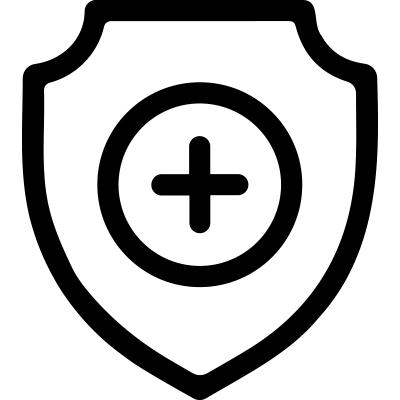 Immunity
Immunity
 Joints
Joints
 Menopause
Menopause
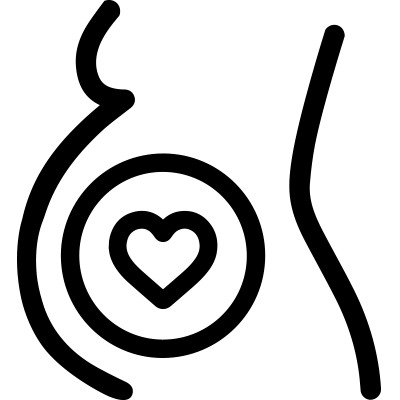 Pregnancy
Pregnancy
 Kids
Kids
 Sleep
Sleep
 Stress & Mood
Stress & Mood





